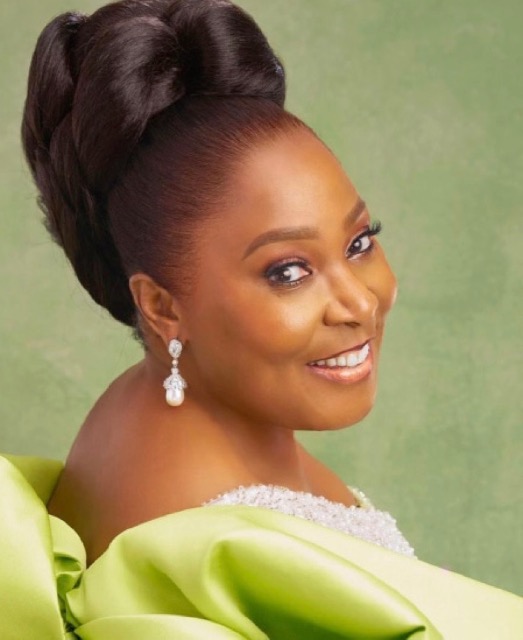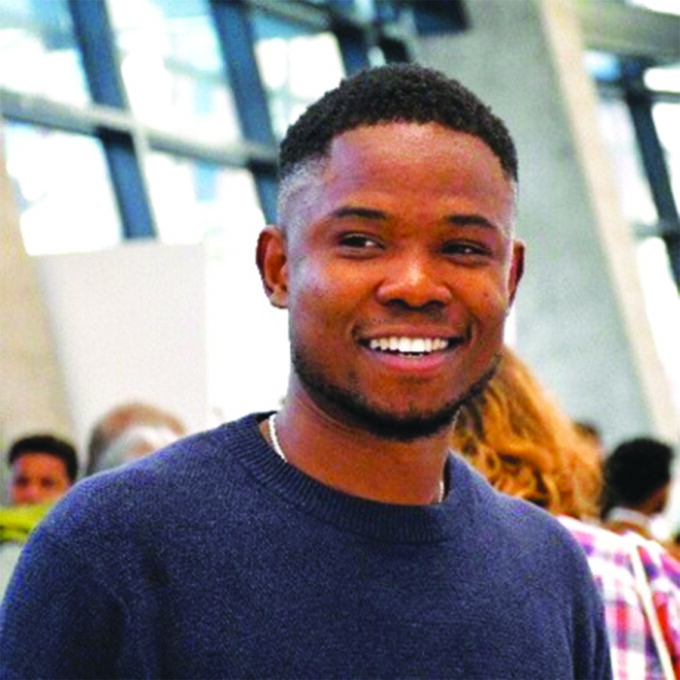Her 60th birthday drew guests from across the world, but for Godrey Ogbechie, the true celebration lies in the journey that brought her here. From her childhood in Cross River to nearly two decades in banking and now in a leadership position at Rainoil Limited, she uses grace as her compass, living intentionally beyond milestones, she tells Vanessa Obioha.
Sixty years’ birthday is approaching, and Godrey Ogbechie still had no idea how the day should go. There were too many ideas running through her mind. A birthday soirée? A charity event (the kind society loves to romanticise)? Or perhaps a destination bash with cocktails, yachts and sun-kissed selfies. The latter lingered a bit on her mind before losing steam. What good would a destination party be if her loved ones cannot make the trip?
Her friends didn’t make things easier. Since she turned 59, they had been drumming it into her ears: this one has to be lit. Sixty, they reminded her, wasn’t just another candle on the cake. It was a landmark. At one point, even her husband Gabriel Ogbechie, the founder of Rainoil, grew worried she might never settle on a plan. But Ogbechie wore a calm veneer, refusing to let the pressure define the moment.
Her hesitation didn’t come from cluelessness. No, she simply wanted the people who had walked with her through different seasons of life to be part of that moment. Those who knew her as a young girl raised in an agrarian family by her late teacher-parents, those who watched her build a career in banking that spanned nearly two decades, and those who now see her steering Rainoil Limited as Group Executive Director. That thought shaped her final decision. Barely a month before D-Day, she finally hit send on her invitations.
“I used my contact list to determine who would attend my birthday,” she told me on a recent afternoon in her opulent Ikoyi home.
To her surprise, the confirmations rolled in. Almost 100 per cent said they were attending. At such short notice, many could have been abroad or tied up, but they cleared their schedules. That loyalty left her stunned.
Then came the flood of help.
“It was like I no longer had control of my life,” she laughed. “I had so much help, so much advice, so many people were taking it upon themselves to arrange dresses, to arrange makeup, etc. People were literally camping in my house just to make sure that everything went well and it did. And it did. The day came, and I had fun.”
Her guests did too. Friends, mentees, associates, and family flew in from across the world. Nearly every continent had a representative. Social media buzzed with clips, tributes, and glowing congratulatory posts about the woman of the hour.
When we met days later, Ogbechie was still full of gratitude. Her voice often lifted in excitement as she recounted the memories, a smile slipping in when she spoke of the friend whose surprise appearance at her Thanksgiving service moved her deeply.
Turning 60, however, didn’t feel like stepping into a new chapter. Contrary to the belief that milestone ages bring special awakenings, she said it only confirmed what she already knew: life is less about milestones and more about everyday grace.
“Every day should be counted as a blessing,” she reflected. “And that’s the interesting thing about life. Sometimes we make so much noise and preparations for an event when life is actually a series of events. I was at a business dinner yesterday, and one of the ladies was talking about no longer saving dresses for special occasions, which is a sentiment that a lot of people came to realise after the COVID-19 pandemic.
“A lot of people began to appreciate life more, appreciate the ability to or the blessing of waking up every morning and no longer making so much of an event out of one day. That day will come and go, and the next day will come. We can never really tell how a day can go or what may happen.”
That conviction — to live with intention — has guided her from the very beginning. Born in Cross River, Ogbechie grew up on the land her parents and grandparents farmed.
“In our community in Cross River, if you were not doing a white collar job, the default profession was farming. Even those who had white collar jobs had a farm. In fact, my father made it very clear that he is not going to buy anything we can grow, even if he could afford it. So we had to do some sort of farming.”
She would later study agricultural economics at the University of Calabar — not her first choice. Her personal preference was law, while her parents wanted her to study medicine, but she couldn’t stand the sight of blood.
Agricultural economics, however, was a field that connected her love of numbers with her farming roots. Banking drew her in soon after, and for 19 years she built a career in finance before taking a leap into her husband’s oil and gas venture.
Few couples successfully mix marriage and business, but the Ogbechies have managed it with love and loyalty.
As Ogbechie told me, she has always been a firm believer in two shall become one. And this does not only apply in the bedroom but in business as long as it is legally acceptable.
She recalled meeting Gabriel when both were young professionals: she in the bank, he at a vegetable oil company. “We were just two serious-minded young people who took our careers and families seriously,” she said. “He was very family-oriented, even as the youngest of two boys and the fifth among six children. For me, it was a default because as the oldest child, my father has always made me feel like I’m responsible for everyone.”
His work ethic also impressed her: “Even as an employee, he worked as though he owned the business.”
So when he decided to start his own company, she believed in him. “The plans were not that grand and elaborate. But we knew that someday, he was going to do his own business.”
It was a risky move because, as Ogbechie puts it, there was no crystal ball to tell her if his plans would be successful or not. What convinced her were the patterns of his lifestyle.
“There are patterns that tell you whether somebody is serious about the future or not,” she said. “When you meet somebody, the way they go about their life, about their work, the way they relate to people, the way they spend their time will tell you if the person is somebody that is investing in habits that will be beneficial in the future or not.”
The couple registered Rainoil in 1994 and operations began in 1997. Though she earned more as a banker at the time, she feared how he would handle stepping out on his own. Will he be willing to let her handle the financial responsibility if things don’t go as planned?
“I wasn’t sure that as an Igbo man, he would want to depend on his wife to shoulder the financial responsibility of the family. He is a very independent man who likes to meet up with his commitments as a husband and as a father.”
But her fears soon eased when his very first supply doubled its expected profit. Growth, she said, was steady, not explosive, but enough to build confidence. She knew this because she was a signatory to the accounts and could see the flow of income. From the beginning, both of them have always been interested in each other’s career growth, offering advice and sharing opportunities when needed.
Therefore, she has always been involved in Rainoil, attending management meetings and offering counsel, but in 2009 she left banking to join full-time. Initially, her resignation letter was rejected by the bank directors because of her efficiency but she insisted. She knew her time was up in the banking sector and moreover, she had no aspiration to become the managing director of a bank. Also, she felt the bank robbed her of quality time with her family. To be clear, her husband’s company was not her only option. She thought of starting a Human Resources consulting firm or pursuing more academic goals.
Before her resumption, her husband sent out an elaborate letter to his staff, introducing her as the new director of the company and listing her skills and accomplishments.
“He needed to state them clearly, in case anybody was in doubt as to the capacity and capability of the person who is coming to take the job.”
Most of the employees who knew her welcomed her with open arms but there were still a few who harboured a grudge. At one meeting, a senior accountant dismissed her input, bluntly saying he was addressing her husband, not her.
“The room went quiet,” she recalled. “But my husband insisted I be respected, and the man apologised.”
Since then, Ogbechie has carved her place. As Executive Director, she focused on building robust systems to support growth. In her words: “Once I step into the office, I leave my marital status at the door. I’m an employee of the company.”
Over a decade in Rainoil, she has stamped her feet in the industry as a woman who can steer a company to profitable waters.
Beyond business, Ogbechie is family-oriented, fashionable in her own understated way, and a woman of deep faith. She resists being defined solely by wifehood or motherhood.
“I don’t believe in people getting lost in being a wife or being a mother. There is still a uniqueness about you as an individual,” she said firmly.
At 60, she remains clear-eyed about aging.
“Being older doesn’t necessarily make you wiser. But it gives you experience that a younger person doesn’t yet have. Whether you use that experience to make wiser decisions is up to you.”
And on legacy: “Leaving a legacy isn’t something you think about only when you’re old. It should be intentional, no matter your age.”


















Leave a comment